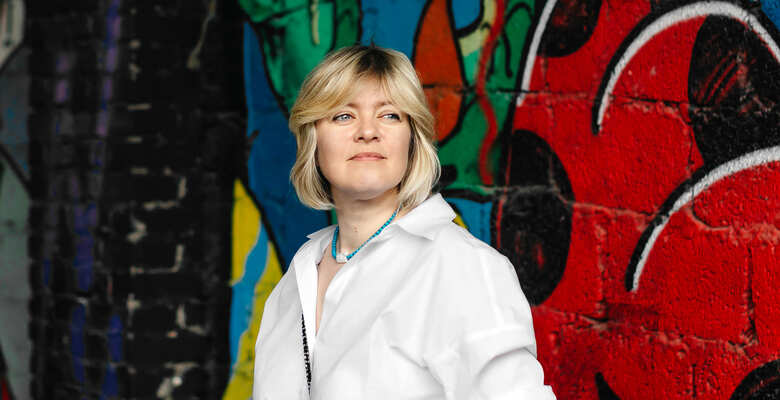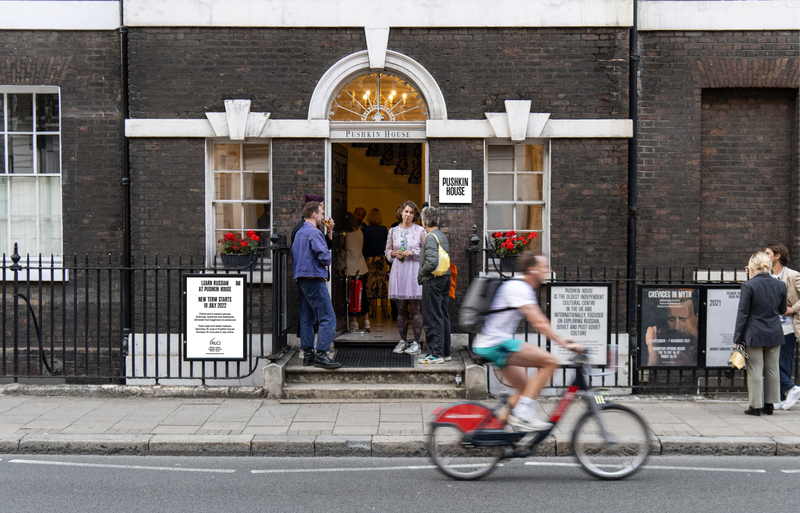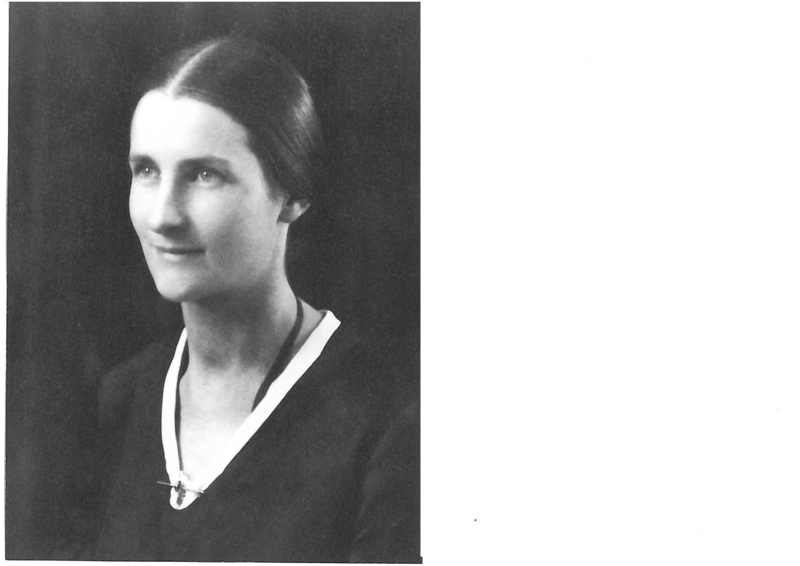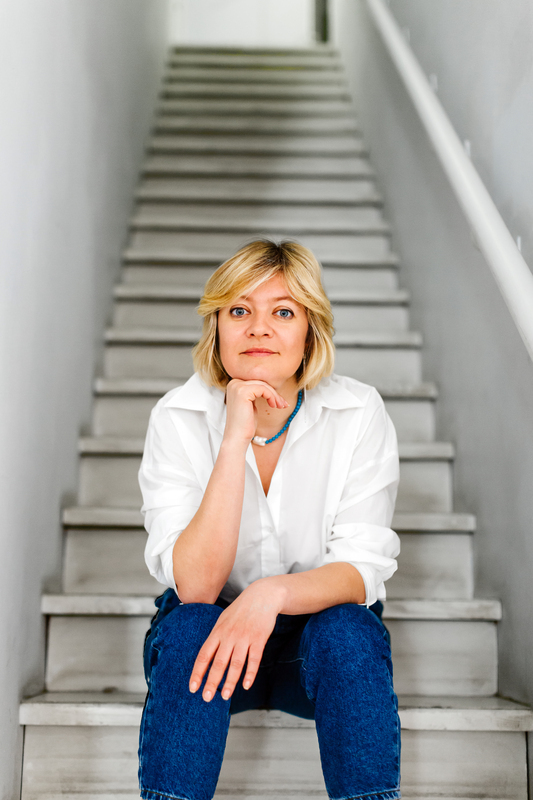
After 24 February, attitudes towards Russia as a whole and its culture in particular have undergone a rethink. The cancellations were announced of major cultural events such as Russian Film Week and Russian Ballet Icons, which are traditionally held in London. At the same time, the comfortable old building of Pushkin House in Bloomsbury continues to receive guests with an interest in Russian politics, language and culture. The head editor of Kommersant UK, Ksenia Dyakova-Tinoco met Elena Sudakova, the Director of Pushkin House and asked her how the oldest Russian cultural centre abroad is faring in the difficult new circumstances.
All Russians in London have probably at least heard about Pushkin House, even if they haven’t been here, but they don’t know that this place has such a long history. Why was the Russian cultural centre in London given this name, and what has made it so long-lived?
They gave it this name because Pushkin is all important to us! We even have a quotation from his verse in our charter. It seems the Centre has lasted so long because the house has never been owned by one person. For more than seventy years, there has been a board of trustees with different people on it at different times. Every three to six years the members changed. All these years, the trustees have always guarded the independence of the organisation. They had neither private capital nor state support behind them. This is a typical form of management for British charities. The cornerstone of Pushkin House’s success has been the preservation of established values such as independence and freedom of speech. Our aim is to preserve and develop our organisation and run projects which are relevant and have social resonance.

Tell us how it all started.
Pushkin House was founded in 1954 by the Russian-speaking theologian Maria Kuhlmann. She was the daughter of the famous Moscow surgeon Mikhail Zernov, who came to England in the first wave of immigration after the revolution. She was wife to the Swiss lawyer Heinrich Kuhlmann, who worked at the League of Nations, where he headed a commission which gave assistance to displaced people. His title was Deputy High Commissioner for Refugees. Initially, foreign students who had been forced to leave their home countries were housed in the first building of Pushkin House. Maria Kuhlmann shared the mortgage payments for this house with two Hungarian refugees of Jewish origin. The Kuhlmanns were well placed in the English establishment, and their project immediately found a receptive audience in their circle of acquaintances, which was very diverse. The idea was that Maria made the rooms available to the students and in the evenings they put on cultural events, which, due to the Kuhlmanns’ interest in Russia, were dominated by Russian classical music and literature. For us today it’s important that originally Pushkin House was a place where foreign students lived, and that it had a connection to the League of Nations. It’s important for us that we don’t just work with Russia. A Russian Cultural Centre has to operate in problematic areas which must be explored with the help of journalists, writers, artists and researchers from Eastern Europe, the Baltic States, the Caucasus etc.

Are you talking about immigrants from the Post Soviet Space?
People from those regions reject the term ‘Post Soviet Space’ for the natural, understandable reason that they want to escape the shadows of the Soviet past. We could call this a Russophone space, and talk about a ‘Russian World’, but, unfortunately, since February 24 this phrase has the wrong type of associations.
So can we say that Pushkin House arose out of an interest in Russian culture, especially the cream of that culture?
You could, however, another aim was to make Russian culture part of world culture and give young people the chance to explain it without having to worry about ideology or politics. The principle of freedom of speech was always respected, although people met who were from entirely different countries, with different worldviews, different pasts and different fates. For example, the Soviet apparatchik Aleksey Surkov, who at the time was responsible for international literary exchanges, could rub shoulders with Baron Alexander von Meyendorff, who had been a general in the Tsarist army and a deputy in the State Duma. That was simply another era. It seems to me that this is the main achievement of Pushkin House, being a meeting place where people with completely different backgrounds can come together.
So, since February 24, has it been possible to have a dialogue here between those who, for whatever reason, support the special operation and those who are against the war? Or is this discussion off limits?
We hold events on the theme of what we can do for Russia and the resources we have at our disposal to ensure that the information and knowledge we have over here is accessible in Russia, despite the propaganda. We want to hope that what you are talking about is happening, however it is a very long process, because the consequences of events will be very long lasting. Everyone must do what they can. Our task is to oppose the war in every possible way, and at the same time, explain to people here why Russian culture shouldn’t be cancelled, and that the Russian people and the Russian regime are completely different things.
Are you concerned that interest in Russian culture might fall?
I’m not at all worried about the cancellation of Russian culture because I am sure it will survive. It seems that the Russians are cancelling it themselves with their constant shouting… It’s just that currently, a reassessment of values is underway, a rethink of our own outlooks and the extent to which they are imperial. It’s very sad that a war has been the reason for this. It poses the question of whether we all may need decolonialistion and makes us consider the degree to which our worldviews were formed from myths cultivated in the USSR which, one way or another, we absorbed. Although we live here and we are being shaped by different conditions, it is still very important for us to go through this process of decolonising ourselves. Individual decolonialistion is a unique story for everyone. Some, for example, may go and study not just Russian culture, but also Armenian, Azeri or Ukrainian culture, about which there is very little knowledge outside their respective communities. We are one of the oldest Russian cultural organisations, perhaps the oldest in the world. As an institution, it’s important to be able to ask what may be the wrong questions, difficult questions about the history of Russia, and to get in reply difficult and uncomfortable answers.
I have heard that in Ukraine they have recently banned the study in schools of Lev Tolstoy’s novel War and Peace…
But this is wartime. We can’t even imagine what is happening in Ukraine, people are dying. This is why the Ukrainians are reacting in this war. Could it really be any different in these circumstances?
And what is happening to Russian culture in England?
Now this is a topic which we are already actively discussing. Our main mission is to continue to foster dialogue and to get out the message that there are two highly contrasting Russias; that of the Regime and another completely different Russia.
What about your audience? How has it changed?
At the moment our main focus is on young people, students and those with an interest in Russia as well as on the children of Russian-speaking families who have already started university over here. We look at widely differing disciplines; politics, philosophy, economics etc. We work a lot with young people and we put on free events for them, not so much to bring them together as to give them the access to the narratives we are creating here. Then, of course, there are our regular visitors, academics, architects, journalists, people interested in politics, diplomats and musicians. Our programmes are quite multidisciplinary. Pushkin House’s mission is to present all aspects of culture; literature, music and art. We have our own book prize, which is now in its tenth year. Another important area is the literary translation of modern prose and poetry. Since February 24, we have translated into Russian many anti-war texts for our audience, posting them into weekly dispatches. It is important not to let people fall into the grip of the propaganda which is present in the media.
Do you get the feeling that you have lost part of your audience, or do you actually find that you have acquired new followers over the course of the last three months?
We certainly have the feeling that we have acquired a great many new followers on Instagram over the course of the last year. We don’t feel that we’ve lost an audience. We have experienced no Russophobia against us, and it’s not clear why we might be supposed to have encountered it. From the very start, it was noted that Pushkin House is an independent organisation which does not answer for the actions of Russian politicians. Mind you, we did have some calls from angry people, however they were all very upset by what has happened, which has to be understood. It’s not a question of collective guilt, but of what concrete steps each of us can personally take. I think we were all shocked and shaken.

Would you agree that in England people have only a hazy understanding of the difference between ethnic Russians, Russian citizens and Russian-speakers?
This is our task; to explain that more than a hundred different peoples live within the Russian Federation and they speak more than a hundred different languages. We have to work with all this variety and diversity. At the moment, as I understand it, a colossal wave of migration is underway across Europe, while Britain is doing all it can to stop anyone coming here. But I don’t live in Russia, and so, naturally I know what’s happening in Ukraine. So many Russians have left the country and they’re all going to settle in different territories, from Armenia to the USA. The question of national identity is now a matter of hot debate. This is not defined by your passport. Rather, it’s made up of a complex assembly of elements. The word ‘Russian’ itself now sounds toxic, but it has to be broken down into a multitude of different parts and rethought.
What do you think, will this wave of perception of everything Russian as, by default, somehow aggressive, toxic and hostile gradually pass? Can a trend be seen?
I don’t have that feeling. Yes, by default there is an association of your nationality with the regime, but everything depends on how you act and your position. Now each time when we meet new people we have to openly speak about our attitude to the war. It really is unavoidable wherever you go, and all our compatriots abroad are having to deal with this.
Do Ukrainians, refugees or otherwise, come to your events?
I used to live in Kiev and I worked a lot with Ukrainian artists. We have curators on our team who have many friends from Ukraine, and many of them have relatives there. That’s why, for a time after the war had just started, we gave Pushkin House over to the Ukrainians as a platform and there were a lot of Ukrainian projects here. At that time we did a lot of fundraising in support of Ukraine. We also started a project on Instagram. We have already had several panel discussions with Russian and Western experts about what is happening. There were no Ukrainian specialists at them, but we hope that the time will come when the Ukrainians will work with us.
What interesting events are coming up at Pushkin House in the next few months?
This autumn we will start holding discussions about the military conflict, the problem of refugees and forced migration. Also, the short-list for our book prize has just come out, the winner will be announced at the end of September. The list is longer than usual, there are more than ten books. This is because the judges have decided that this year it’s necessary to reflect the complexity of what is happening, all the subtleties and shades of everything connected to Russia. The author Dmitry Glukhovsky and the political commentator Ekaterina Shulman, both very well known in Russia, will be members of the Book Prize jury this year. Quite soon now, there will be a series of events looking at the history of the Russian Empire from a fresh angle, taking into account cultural influences. The aim is to help the visitors to effectively dissect history and attempt to make sense of how they perceive everything which has been going on.
What is the main conclusion you have made for yourself so far?
It’s time to drop the term ‘Great Russian Culture’, because it doesn’t bring people together. Instead, it’s very divisive. It provokes a cringe, even among the custodians of that culture. It seems to me that we need to give a platform to a range of voices, do more research and showcase more alternative views. We’ve got no end of work to do.






